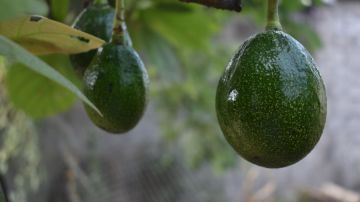The Indigenous History of Avocados in Latin America Plus Avocado-Based Recipes
National Avocado Day comes every July 31 and it makes total sense that there’s an entire day dedicated to one of the most beloved fruits that’s a regular part of our diets

Photo: René Cadenas on Unsplash
National Avocado Day comes every July 31 and it makes total sense that there’s an entire day dedicated to one of the most beloved fruits that’s a regular part of our diets. Avocados are grown primarily in Latin America with major markets in Mexico, the Dominican Republic, Peru, Colombia, Chile, and Brazil. Here’s the thing though, most of us grew up eating avocado with just about every meal. It was never really trendy in our communities, the creamy and delicious fruit was a source of nutrition and nearly as ubiquitous as rice and beans. So even though we’re happy it’s available literally everywhere now, we know all the credit should go to our indigenous peoples. Without them, the fruit would have never survived and been cultivated into the popular crop it is now.
It got us thinking though, how exactly did indigenous people use the mighty aguacate? We now know avocados are full of healthy fats, have awesome moisturizing properties, and they’re good for your bones and eyes too. But, what did our ancestors think? Keep reading to find out and you’ll also find some tasty recipes that put avocados front and center. Enjoy!
wp_*posts
The Mexican Roots of Avocados
According to the official Avocados From Mexico website, researchers believe that avocados are native specifically to Puebla, Mexico, which is located in the South Central region of the country. It’s believed that indigenous people began eating them roughly 10,000 years ago. The oldest artifacts related to avocados were reportedly found in a cave in Coxcatla’n, less than 200 miles west inland of Veracruz.wp_*posts
Native Tribes Were the First to Cultivate Avocados
https://www.instagram.com/p/BgEGOtChQIw/
It’s also said that avocados were first cultivated by Mesoamerican tribes as many as 5,000 years ago, which makes avocado farming a practice as old as the invention of the wheel. Still boggles our minds that colonizers thought the indigenous people to be “savages.” Imagine if there were no avocados? Our culinary experiences would be much less delicious and nutritious.wp_*posts
Nutritional Value

Avocados of course are known to be insanely healthy, so they would have been a crop that the indigenous people relied on for sustenance and nutrition. The are highly caloric, but naturally cholesterol-free and full of heart-healthy fats, which makes them an excellent source of energy for people who spent their days immersed in manual labor.wp_*posts
Superfood Status

In addition to those good fats, avocados are also packed with other nutrients that have garnered them that superfood status. They are an excellent source of Vitamin C, B-Vitamins and potassium, and even has bit of protein in it as well.wp_*posts
Super Strength
https://www.instagram.com/p/CR3yUU5H4Ao/
“Aztecs believed the fruit provided strength to whomever consumed it, and in ancient Maya, the fourteenth month of their calendar (K’ank’in) is represented by the glyph for the avocado,” according to Avocados from Mexico website. Considering the nutritional benefits of avocados, the indigenous likely had good reason to make this association.wp_*posts
Aphrodisiac Uses

Most cultures have certain foods that they consider to be aphrodisiacs. A lot of them are animal products, various seafoods or even actual reproductive parts of certain animals. But apparently, the Mesoamerican people believed that avocados have aphrodisiac properties. They typically grow in pairs, and resemble the shape of a certain part of the male anatomy, so it’s not clear if that because of their shape or actual anecdotal evidence.wp_*posts
Love & Fertility
Whether it’s related to the aphrodisiac aspect or not, the indigenous people also believed that eating avocados has fertility benefits. The healthy fats very likely could have some fertility benefits. We do know that they are particularly good for babies due to the amount of folate they contain. Folate can decreases the chance of miscarriage and birth defects.
wp_*posts
Three Avocado Recipes (that aren’t guacamole!)
Avocado Smoothie
https://www.instagram.com/p/CNWKOnED8Zu/
An avocado shake or smoothie makes for an excellent breakfast or snack. It’s simple to make with just a few ingredients including the whole avocado, the milk of your choice and some ice. To make it a little sweeter, add maple syrup, honey or even some fresh banana, and you’ll have a creamy and nutritious treat.wp_*posts
Avocado Pasta
When you’re craving pasta, but want something a little different, you can whip up a delicious pesto-like sauce using avocado. Just combine avocado, fresh basil, walnuts, olive oil and some lemon juice in blender until smooth and creamy and salt and pepper to taste, then toss with the pasta of your choice. It’s surprisingly rich and satisfying.wp_*posts
Avocado Egg Salad
Instead of mayo, you can replace the mayonnaise in your favorite egg salad recipe with smashed avocado. Or you can use this simple recipe, which uses chopped boiled eggs, the avocado, some parsley (you could also use cilantro), lemon juice, garlic, dijon mustard and salt and pepper to taste. This would make for a super-healthy, protein-packed and easy lunch or dinner.

















